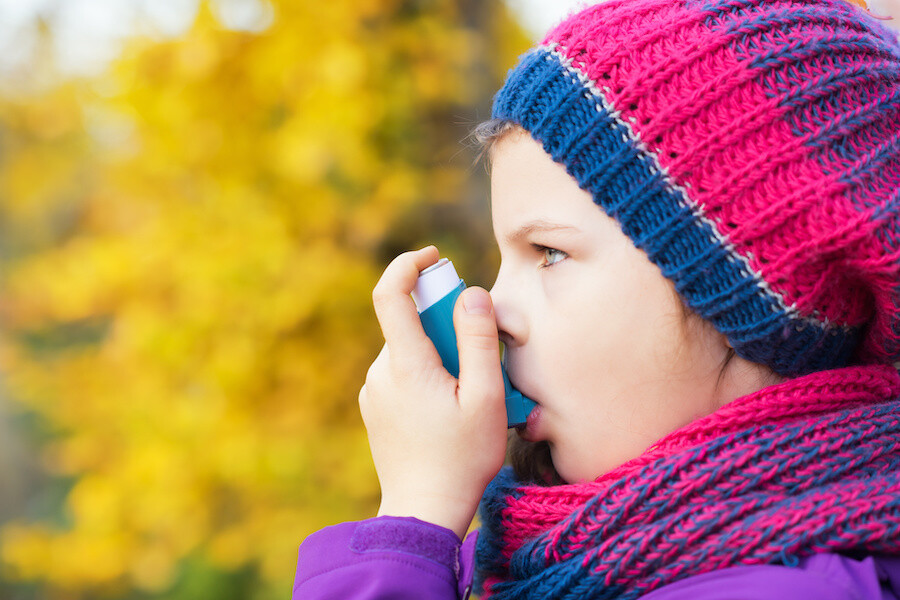Asthma is a chronic lung disease that inflames and narrows the airways. This can make breathing difficult and trigger wheezing, coughing, shortness of breath, and chest tightness. Asthma attacks can be mild or severe, and they can even be life-threatening.
Why Are Asthma Attacks Common in Early Fall?
There are a few reasons why asthma attacks are common in early fall, especially for children:
- Allergens: Early fall is a peak season for many allergens, including ragweed pollen, mold spores, and dust mites. These allergens can trigger asthma symptoms in people who are allergic to them.
- Respiratory infections: Children are more likely to get respiratory infections, such as the common cold and the flu, in the fall. These infections can also trigger asthma symptoms.
- Weather changes: The weather in the fall can be unpredictable, with rapid changes in temperature and humidity. These changes can also trigger asthma symptoms.
How to Reduce Your Risk of Having an Asthma Attack in the Peak Season
There are a few things you can do to reduce your risk of having an asthma attack in the peak season:
- Take your asthma medication as prescribed by your doctor. This includes both controller medications, which help to prevent asthma attacks, and quick-relief medications, which are used to treat asthma attacks.
- Avoid your asthma triggers. If you know what triggers your asthma symptoms, try to avoid them as much as possible.
- Get a flu shot every year. The flu can trigger asthma attacks, so it’s important to get a flu shot every year.
- Monitor your asthma symptoms closely. If you notice any changes in your asthma symptoms, such as more frequent wheezing or coughing, talk to your doctor right away.
Additional Tips for Children
If your child has asthma, there are a few additional things you can do to help them reduce their risk of having an asthma attack in the peak season:
- Make sure your child is taking their asthma medication as prescribed by their doctor. It’s important to talk to your child about their asthma and why it’s important to take their medication.
- Help your child avoid their asthma triggers. This may mean helping them to check the pollen count before going outside or helping them to clean their room regularly.
- Encourage your child to wash their hands frequently. This can help to reduce the spread of germs that can trigger asthma attacks.
- Talk to your child’s school about their asthma. Make sure that the school staff knows about your child’s asthma and what to do if they have an asthma attack.
By following these tips, you can help to reduce your risk of having an asthma attack in the peak season.
[maxbutton id=”2″ url=”https://www.lung.org/lung-health-diseases/lung-disease-lookup/asthma/resource-library” text=”Asthma Resource Library” ]
